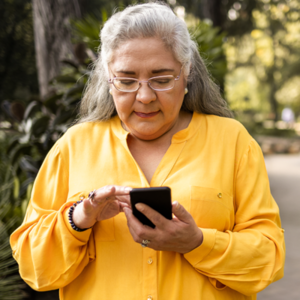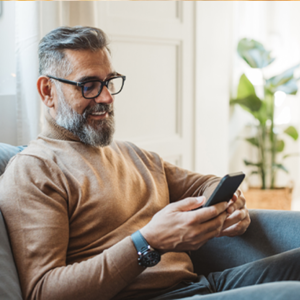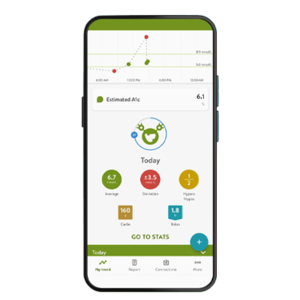Andrew is 57, lives in Scunthorpe and was diagnosed with diabetes later in life. He uses the mySugr app to help manage his diabetes. “I like mySugr as it allows you to go back and replay your data,” he explains, “you don’t have to write everything down, and you can share it easily with your GP.“
Sharing diabetes data electronically has been shown to be an advantage over handling paper logbooks as it can help to preserve the data by removing possible sources of error such as illegible handwriting or incomplete data entries.1 It also eliminates the hazards of handling paper logbooks stained by blood drops.
By wirelessly transferring glucose readings from a Bluetooth®-enabled glucose meter, many smartphone apps, such as mySugr, ensure precise time stamps and glucose measurements.
“For me, it’s brilliant that it has predicted HbA1c on it, which I’ve found to be quite accurate. It can be a great way to monitor your diabetes between appointments and to know when you should get in touch with your diabetes nurse.”
Andrew
Monitoring diabetes between appointments is very important when you consider that the average person with diabetes in the UK spends only three hours a year with a healthcare professional.2 As someone with diabetes you are likely to spend most of your time self-managing the condition.
Regular monitoring with the mySugr app has been explored in a study. It showed that after six months, patients’ estimated HbA1c dropped from an average of 9% to 7.7%.3 A 1% reduction in HbA1c has been shown to make a real difference, leading to a significant reduction in the risk of diabetes-related complications.4
If you’re struggling with your diabetes and want to understand more about how the mySugr app can help you, find out more here.




